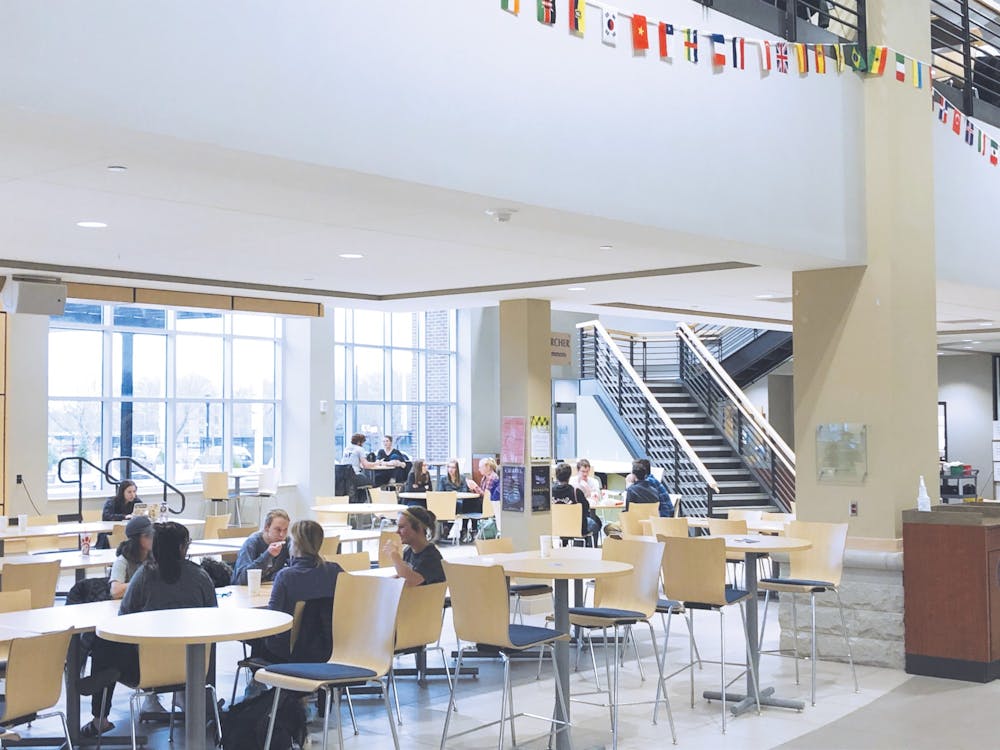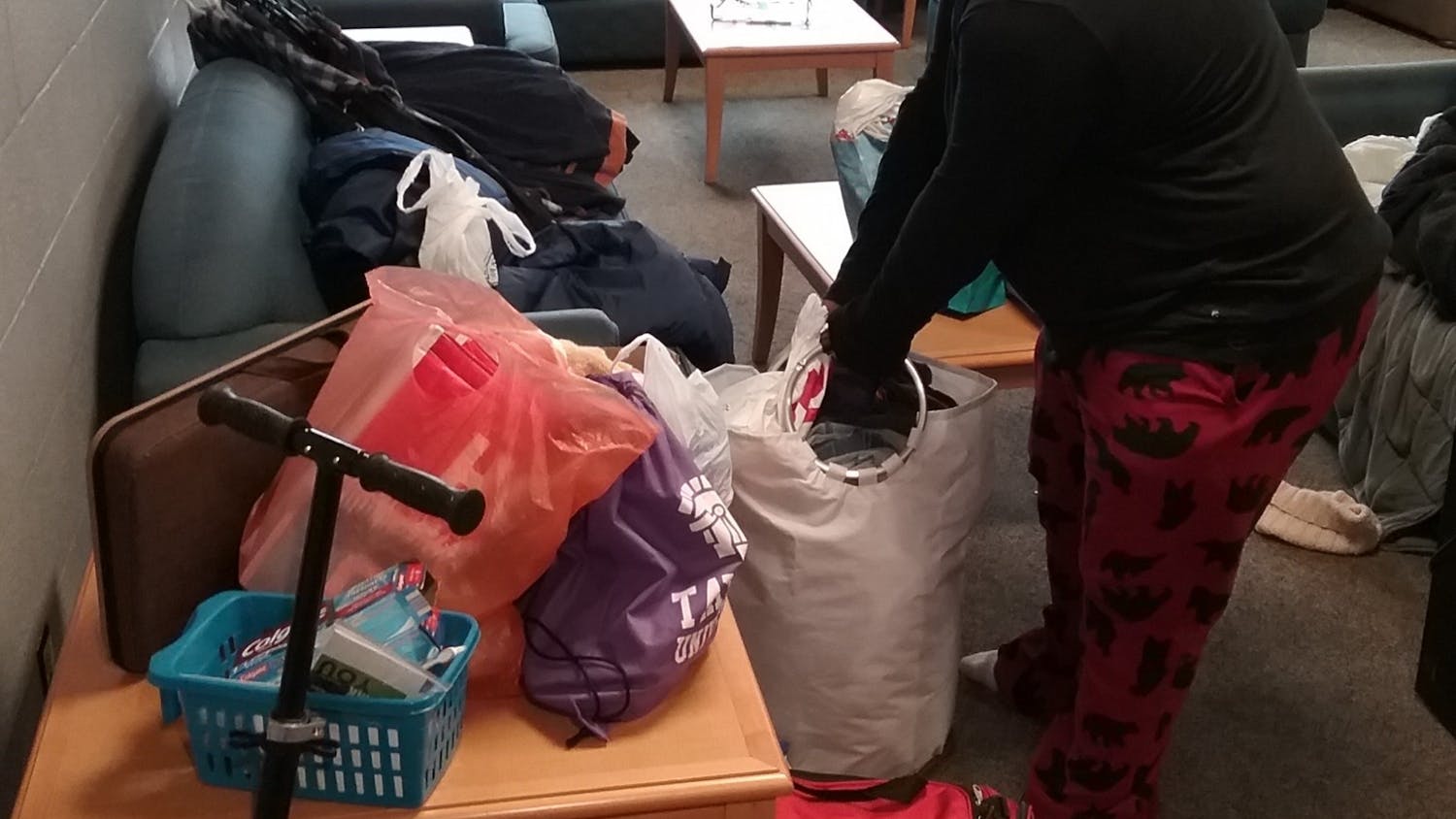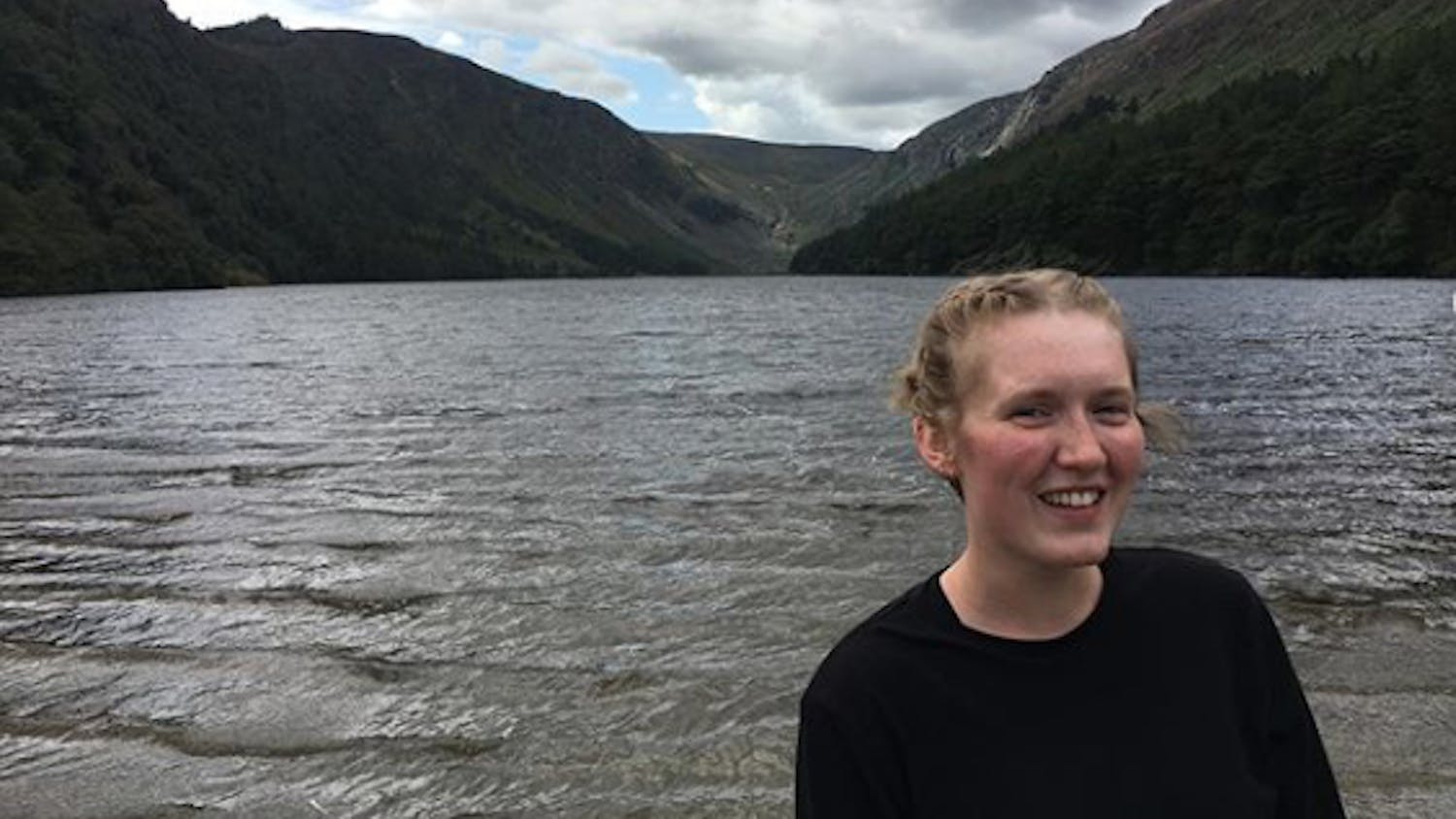Editor's Note: More updates on The Echo website to follow - Editor
With the growing awareness of the pandemic Coronavirus (COVID-19), Taylor has temporarily suspended on campus classes until April 14, after Easter break.
In a press release at 10:23 p.m. on Thursday, March 12 Provost Michael Hammond informed Taylor that classes are effectively canceled from March 18 through March 20.
Taylor administration will continue to monitor the outbreak daily and reevaluate student’s return to campus after Easter break.
“I would take essential stuff with you, and I don't mean oils,” said Jesse Brown, dean of students and Title IX coordinator.
He encourages students to pack the necessary things that they would need to continue classes from an alternate location during the break.
On March 30 classes will resume online or by virtual delivery.
Indiana Governor Eric Holcomb issued a statement on March 12 that all schools are required to follow a 250-person limit on “non-essential gatherings,” in response to the COVID-19.
“This is a time when we must do all we can to reduce the spread of COVID-19, protect our most vulnerable populations and reduce their potential to acquire or spread this virus,” Holcomb said in a statement on March 12. “While some actions are drastic, now, not later, is the time to act.”
“Holcomb is also making it easier for schools to shut down temporarily by giving school corporations a 20-day waiver of the required 180 instructional days, and he has suggested that schools prepare for broad closures and the need for e-learning and remote classroom lessons,” as stated in the Indianapolis Business Journal.
The decision to suspend on campus classes came after the announcement that all Taylor-led international and domestic Spring Break Missions trips were canceled on March 10.
Affected groups included the Spring Break Missions trips, men’s and women’s track and field teams and the Taylor Chorale Civil Rights bus trip.
Taylor has asked all students, faculty and staff to comply with the Center for Disease Control’s (CDC) and Indiana State Department of Health’s (ISDH) guidelines for travel.
“We care deeply about the health and well-being of Taylor students, both on campus and abroad,” as stated in a March 11 press release.
At this time students and staff are encouraged to travel home for spring break. However, upon traveling home if students or staff come in contact with COVID-19, Taylor reserves the right to ask the individual to participate in self-isolation off campus, preferably in their own home.
Students have been asked to report where they are going for spring break to the portal.
CDC and ISDH have four levels of advisory for travel. This includes, level one: exercise normal precautions, level two: exercise increased caution, level three: reconsider travel and level four: do not travel.
This announcement follows the decision to cancel the spring semester study-abroad trip to China in response to COVID-19 prior to the start of spring semester.
In further action, all study abroad students have been called back home and are completing their classes online for the rest of the semester.
At this time the immediate health risk from COVID-19 for the general public has been deemed low by the CDC.
Concerning the state of Indiana as a whole, on March 6 Holcomb signed an executive order declaring a public health emergency after the first case of COVID-19.
“Today serves as yet another reminder of the importance to stay informed and prepared as you carry on with your daily lives,” Holcomb said in a press conference on March 6.
In the state of Indiana colleges including Ball State, Indiana University and Purdue University have closed their campus and moved to online classes.
As other universities follow this example, Anderson University and Indiana Wesleyan University and extended their spring break through Easter weekend and will reevaluate.
The first case in Indiana was a person from Marion County who had traveled to Boston for a conference at the end of February.
Officials said that this adult is stable in self-isolation and does not require hospitalization.
“With the help of our federal, state and local partners, Indiana is responding to this case as we have planned and prepared for weeks,” Holcomb said. “The Hoosier who has been diagnosed has taken responsible steps to stay isolated.”
On March 8 state health officials announced that Indiana had its second confirmed positive case of COVID-19.
The patient who lives in Hendricks County had also traveled to the same conference in Boston.
"The question has never been if Indiana would get a case but when we would see one," said Dr. Kris Box, Indiana State Health Commissioner, in a press conference on March 6.
Box said that Indiana would be expected to see more cases in the future.
The Indiana State Department of Health received COVID-19 test kits Feb. 29 and has the capacity to run up to 1,000 tests.
As of publication of this article there are twelve positive cases of COVID-19 in Indiana and 64 people who have been tested.
On a national level, President Donald Trump signed a $8.3 billion spending package on March 6 in an effort to combat the spread of COVID-19.
On March 11 Trump issued a 30 day travel ban on 26 European countries.
To date there are 127,863 cases worldwide, which have resulted in 4,718 deaths. In the United States there are 1,323 positive cases of COVID-19.
As stated by the CDC, COVID-19 is a virus that affects your respiratory system. Transmission of the virus is from person-to-person contact and in light of this fact it has been advised that people avoid touching your eyes, nose, and mouth.
The Indiana State Department of Health encourages colleges to practice “social distancing,” in cases of illness. This is a means of remaining out of public places where close contact with others may occur.
Many news outlets have highlighted attacks against Asain people since the rapid spread of COVID-19 that originated in Wuhan, China. These attacks appear to be motivated out of fear.
“Taylor University is committed to treating all individuals as equal image-bearers of Jesus Christ and therefore condemns any act of xenophobia or racism,” stated Provost and Executive Vice President Michael Hammond in an email to the Taylor community. “We will continue to support all faculty, staff and students whose home countries have been affected.”
Hand-washing has been deemed the most effective method in combating the spread of this virus, according to the CDC, along with people avoiding touching their own face.
The CDC also warns against hand sanitizers that do not contain at least 60% alcohol and consider them to be ineffective.
People seeking more information on COVID-19 are encouraged to visit the Indiana State Department of Health's website or the CDC website or Taylor University’s official website for more information.
More updates on the COVID-19 virus to come.





